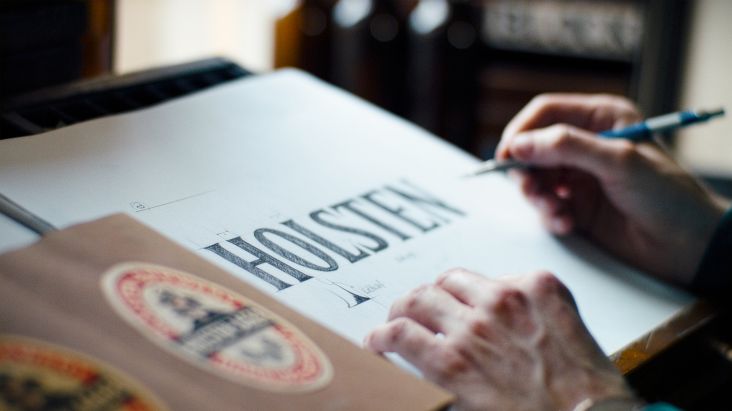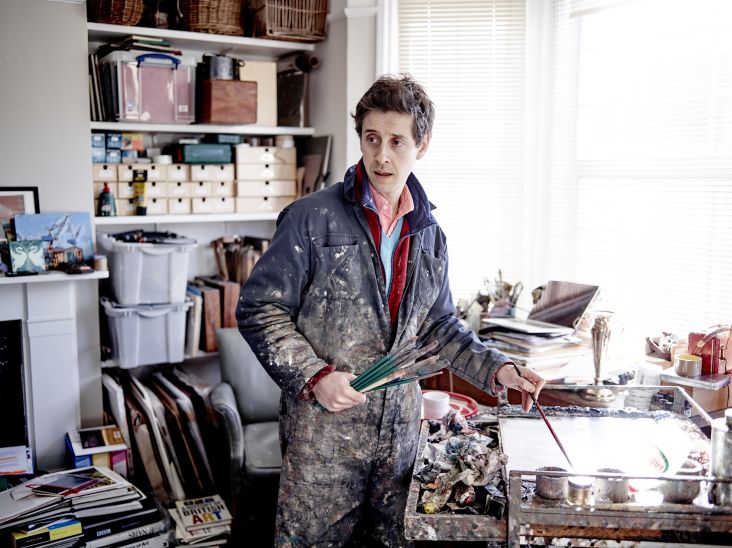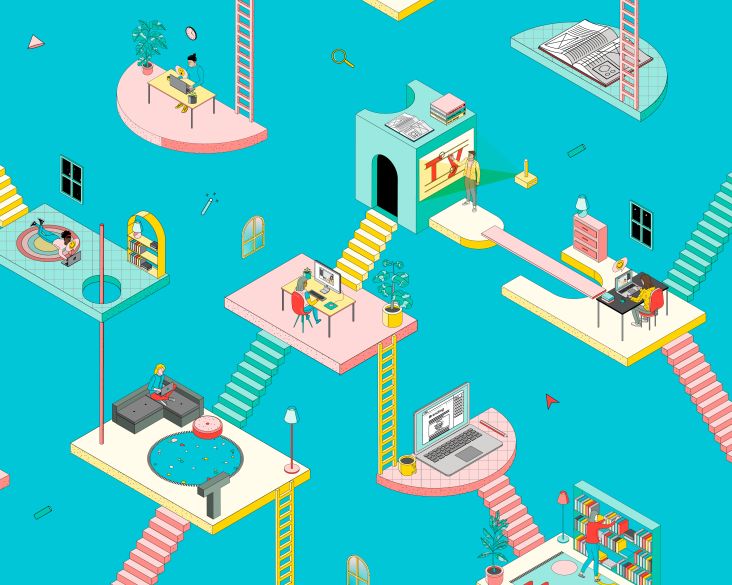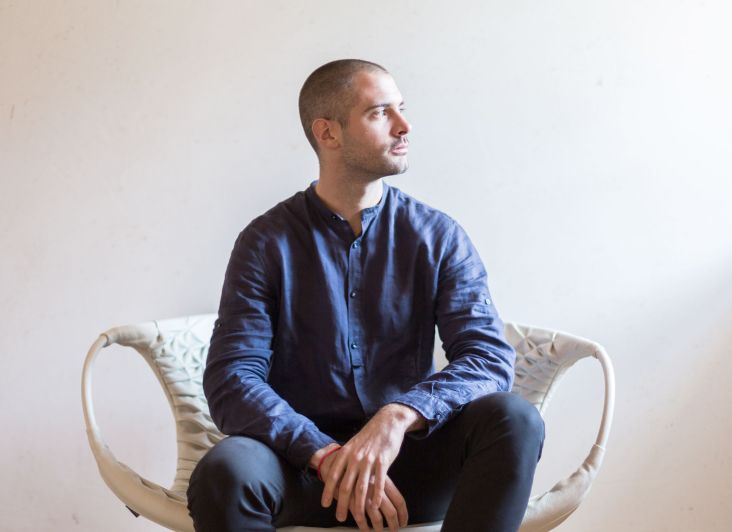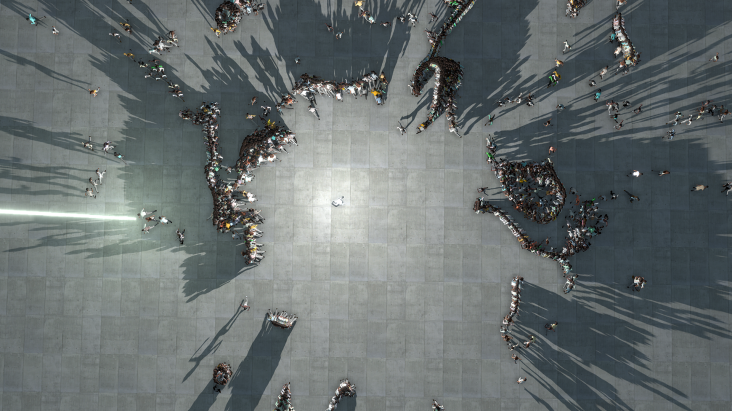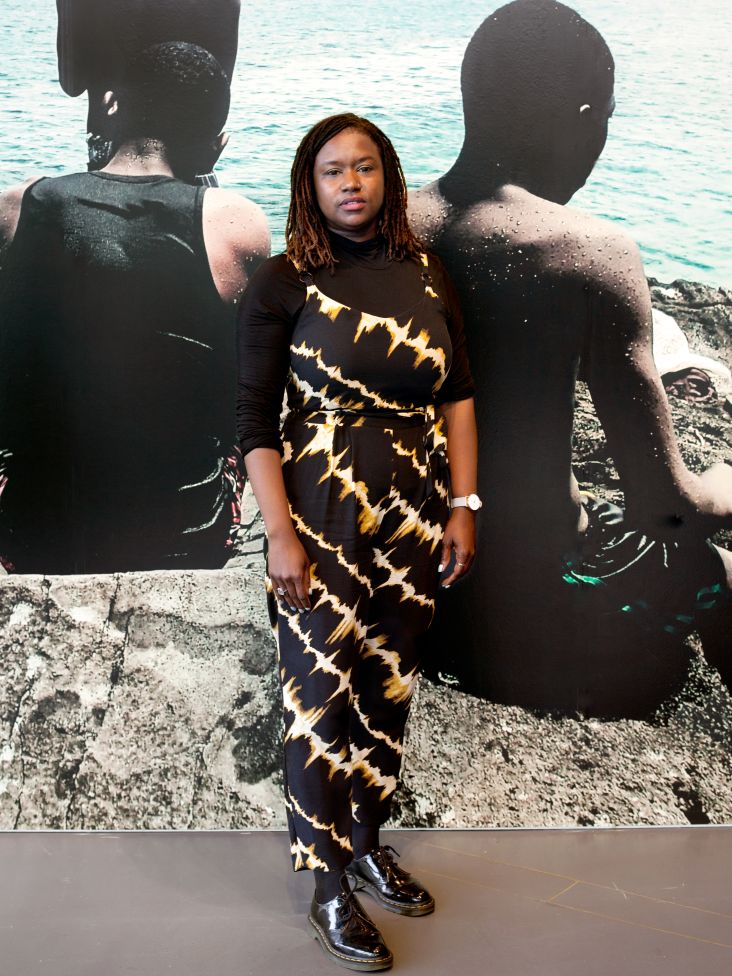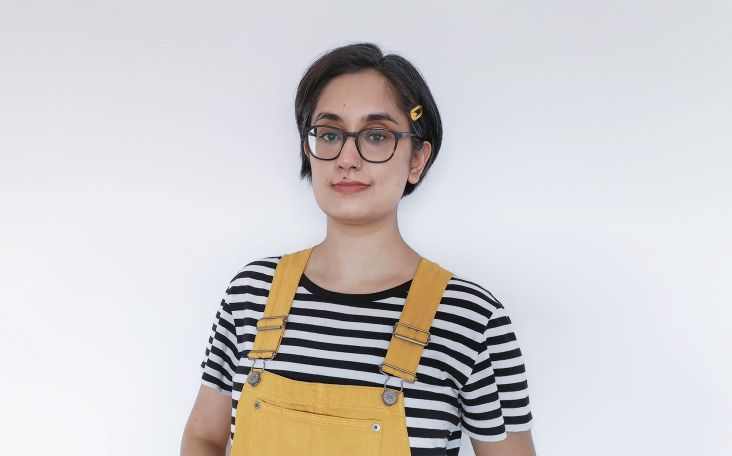Sarah Boris on how the pandemic has changed her life, and why we all need to slow down
Born in London and raised by French parents, award-winning graphic designer and creative director Sarah Boris has had a phenomenal career so far.
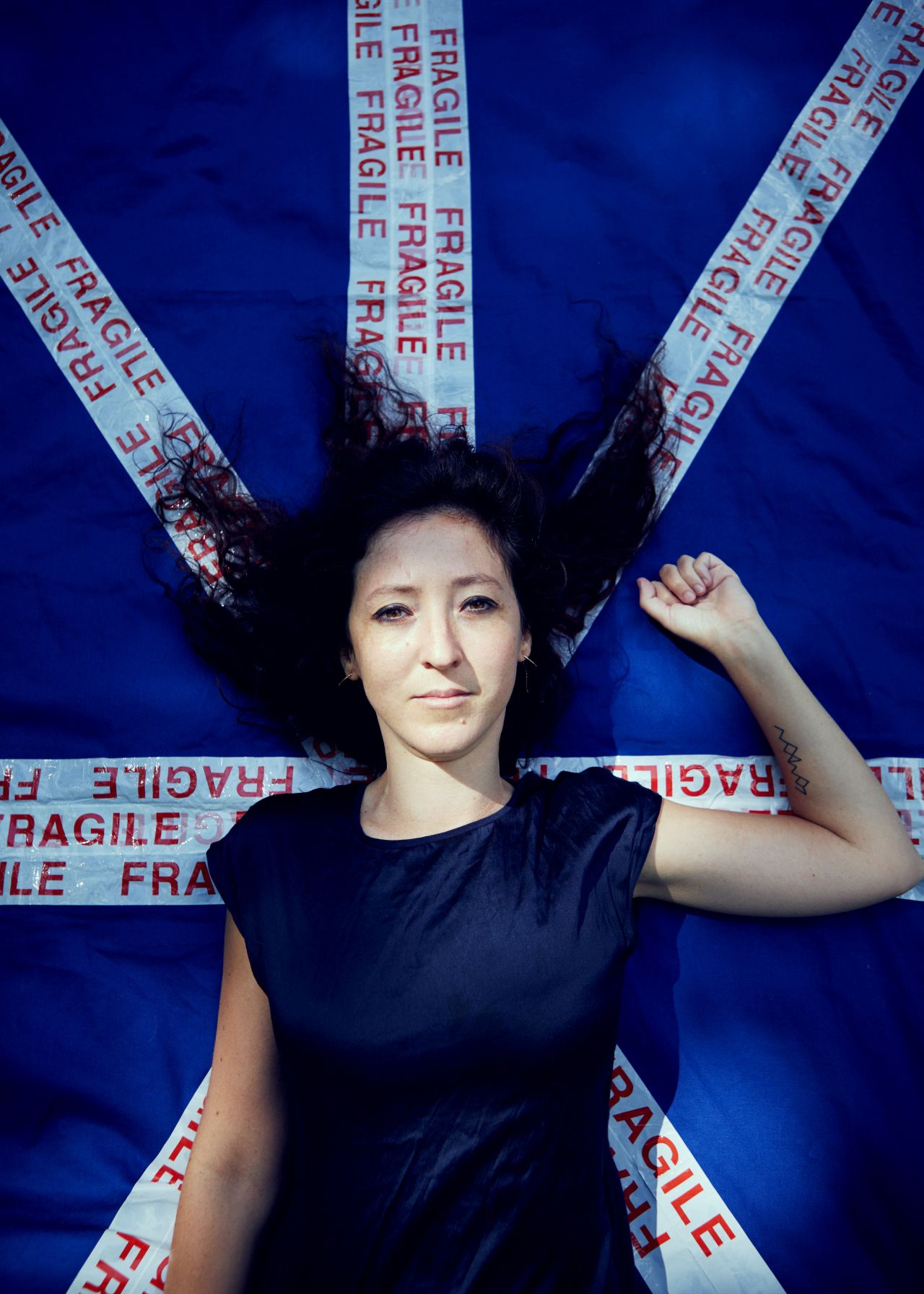
Portrait of Sarah Boris - Photography by Lorna Allan
She's worked with some of the world's leading publishing houses and art organisations, including Phaidon Press, The Photographers' Gallery, Tate and Barbican. Sarah notably crafted the fresh identity for the Institute of Contemporary Arts in 2010.
Modest about her success, she tends to shout louder about matters that are important to her: national identity, the current political landscape, and the importance of diversity and inclusion in the design industry.
This week, I chatted with Sarah about the pandemic and its impact on her life and work. We also talked about how the world is changing under Covid-19 and why we all need to think about working smarter, not harder.
How have you been coping with the world over the last few months?
Quite frankly, I feel slightly in limbo right now. I'm craving for something out of the ordinary, a surprise maybe, something unexpected. I might have to provoke it. I think my life has never been so full of routines than during lockdown. This new way of life has grounded me to some extent, but I'm ready for what's next.
The main things that have kept me sane in the last few months have been exercising, cooking, sleeping and of course designing, as well as some special people like you in the creative community that I had chats with for the first time. I was also invited to do eight talks online via Zoom, and Instagram Live during lockdown. These kept me busy and connected to people.
I was also fortunate to recently mentor sixteen Syrian artists ahead of an exhibition of their work in Berlin and Oslo. Having conversations with people from Syria has made me put so many things in perspective.
I've enjoyed our chats, too. The world is changing. Has the pandemic changed you?
It's changed parts of me. For one, I feel less stressed. I've not missed some of the stress caused by deadlines, email ping pongs or the design industry and its fierce competitiveness. Work has also been much quieter for the first time in 15 years, and oddly, I feel somewhat at peace and content.
I've tried to see the pandemic as a moment to reconnect with what's essential and embrace this journey into stillness. Interestingly, I've found that I've not missed attending industry events in person although I know I'll be happy to go back to some and see people in real life rather than on a screen. I had talks scheduled in Dublin, Birmingham, Manchester and Milton Keynes which have all unfortunately been cancelled due to the pandemic. I hope they are rescheduled in future.
On a physical level, I had a small change: I got my first tattoo as soon as the tattoo parlours reopened. I always wanted one. I rarely design anything for myself, let alone a design that would be engraved on my body for life. I'm so happy with it. It felt special, like a ritual, marking a transition from the pandemic to what's next in my life, and there are changes ahead.
I hope to find sustainable ways to keep doing my own work (publishing, printmaking, artist residencies) while taking design commissions in parallel. Just before lockdown, I launched in London and Paris, my book 'Global Warming Anyone?' which collates over 120 tweets by Donald Trump on climate change. There are a few copies still available.
Next, I would like to publish a book on language (English and French) which I was hoping to launch in September, but I am now thinking of postponing it to next year. I feel it would be tricky to put a book out now. Initially, I had planned on self-publishing it, but maybe this might give me time to find a publisher. Ideally, I would love to partner with a language publisher. I am also working on the third edition of 'Le Théâtre Graphique' (The Graphic Theatre) which is my first wordless flipbook. Each edition is printed with a different printer and print technique. The first one was printed digitally and was an extra limited edition four copies, the second one was riso-printed, and the third will be litho printed with Pantone colours.
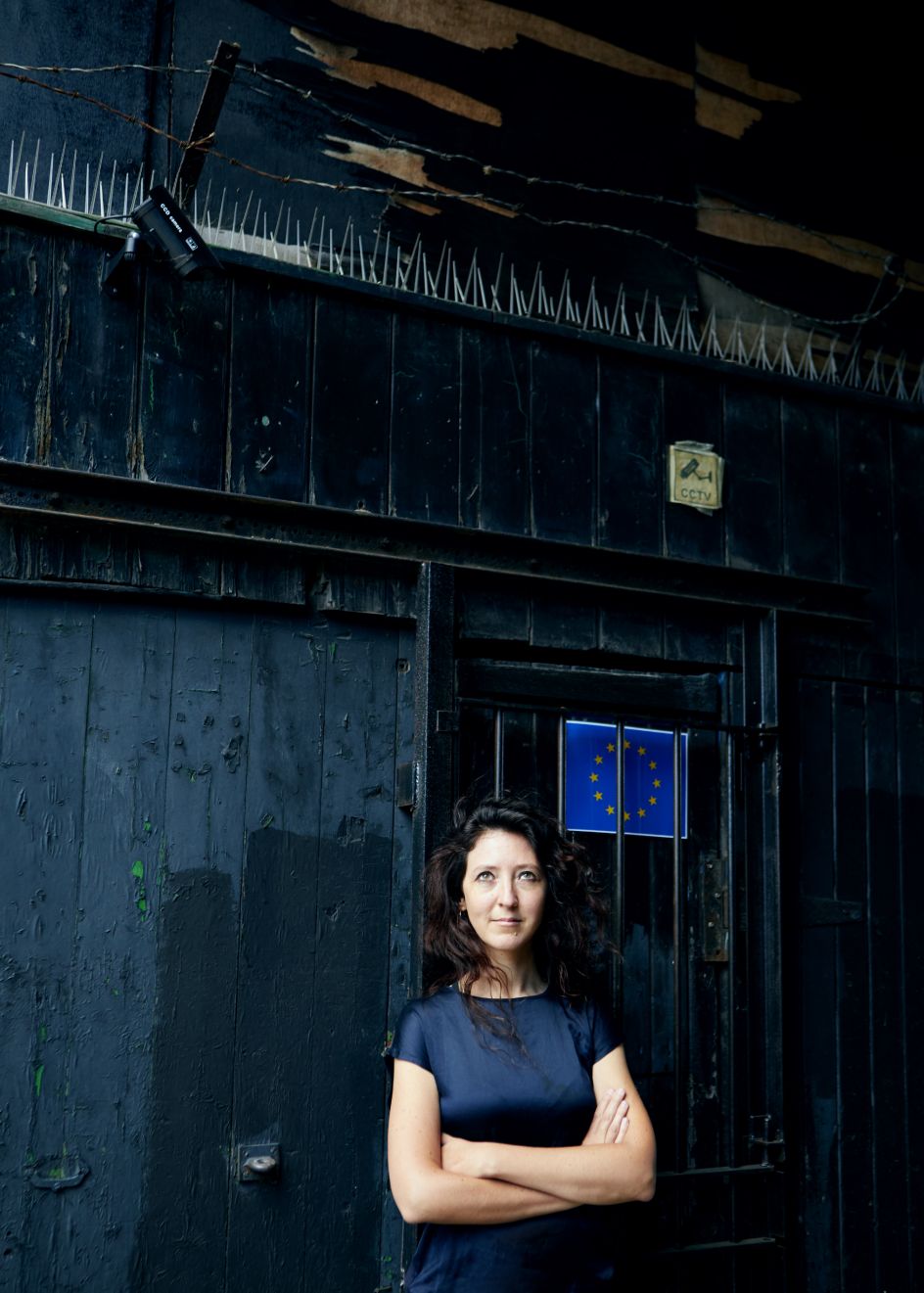
Portrait of Sarah Boris - Photography by Lorna Allan
Many of us have been on a work treadmill for some time. Do you think your own experience of slowing down marks a more significant change in the creative industry?
I hope so, but I can't vouch that it will mark a more significant change. Some people are relentless in the creative industries, but from having been there, I understand why. The story delivered in the press is often different and hides the real hurdles and struggles faced by creatives. What creative person wants to spend life chasing numbers, targets, clients, pitches working day and night? We can find fulfilment by balancing work and other activities.
There have been trends talking about a better work-life balance and self-care, and then a trend demonising these very things, but at the end of the day, I feel we should all slow down and avoid the rat race.
We should take this work-life balance thing very seriously, and all be advocates for it. I am really in favour of wellbeing and looking after the planet, ourselves and each other better. I think this pandemic and time of reflection it has brought, has only increased that feeling for me.
That said, I did work non-stop for the first ten years of my career, but it was my choice. I was racing and working all the time, and it did have consequences on my social life, family time and much more. I would probably not do it any differently today, but I would say that it's not necessary to do it that way and that we should not push the next generations to work that way.
I've witnessed quite a few fellow creatives saying they feel like an empty shell after years of insane work and wondering in the name of what "passion" did they put their job before life and in life I mean love, sleep, health, eat, fun, travel, dream, etc.
We question what success or recognition means. What's the point of working like crazy if you don't even have time to see people or read a book or just chill? I once remember a junior designer boasting that he had been working every night until 2am for a large branding agency. It pains me to see design studios still working insane hours and making their junior staff work through weekend deadlines and late night pitches. On the other hand, I praise the studios that make their staff leave at 6pm. It's exemplary.
I think we can shift working habits for the greater good. We often hear, "Work hard!" But I feel today we should say, "Live hard!"
I agree. Life shouldn't focus entirely on work. People are starting to wake up to other realisations too, aren't they?
Hopefully, they are. I don't want to speak for others. Still, my observation is that the awakening is slow and somehow the pandemic has shown to what extent our society is dragging its feet at making the right kind of progress, be it on topics of diversity, or the planet.
We're still to see governments that work to improve lives rather than divide and destroy. How bewildering it is that people made a vote that removed their freedom of movement. It's pure regression, and on the part of the government, it's a fraud. It's only increased racism, and abuse towards people, including those perceived as foreigners for their looks, accents or the language they speak.
For the first time, while speaking French on a bus journey in London, someone shouted at me: "Go back to your country or speak our language!" Little did they know I am also British and born in the UK. I did not even bother to tell them as I felt acceptance of others should not be based on nationality but purely on humanity.
I realise we all live in little bubbles and we tend to get the information, news and beliefs from inside these bubbles. There's so much to fix, learn, improve, the bubbles should burst, and we should spill, mix and regroup differently. We've all got an urgent role in making things better and protecting fellow humans.
I feel the education system needs to be re-visited, and the curriculum and histories we learn need to be re-written. Art and design history, for instance, still undervalue the contribution of women and people of colour. There's so much to be done.
To find out more about Sarah Boris, follow her on Instagram.


















